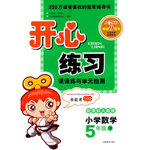题目内容
18.Once upon a time,a wealthy villager hid a huge piece of gold in a nearby rice field to protect it from robbers(强盗).Many years later,the wealthy man died and no one else knew about the gold.One day,a poor farmer began to plough(犁)the field.After ploughing for some time,his plough struck(碰、撞)the long forgotten treasure.
At first,he thought it must be a very hard tree root.However,when he went closer to look,he saw that it was a large piece of beautiful shining gold.
Waiting until midnight,the farmer started to take the gold home.He tried to lift the gold but it was too heavy.He tried to pull it out with ropes,but it was so huge that he could hardly move it.He became frustrated and thought how lucky he was to have found treasure,but unlucky too,as he could not move it.He even tried kicking the gold but it would not budge!
He sat down and began to use his head.He decided to break the gold into smaller pieces.This would enable him to carry the gold easily.
He thought to himself,"I will use one part for my daily needs,I will save the second part for a rainy day.I will invest(投资)the third part in my farming business.I will use the fourth part to help the poor and needy."
Follow this,he calmly divided the huge piece of gold into smaller pieces.Finally,he took all the gold home easily and lived happily ever after.
46.The wealthy villager hid the gold in the rice field toB.
A.plough the field
B.keep it safe
C.donate it to the farmer
47.The poor farmer foundB when the ploughted the field.
A.a hard tree root
B.the piece of gold
C.rice crops
48.When the farmerC the gold,we know he was annoyed.
A.lifted
B.pulled
C.kicked
49.The word"budge"in the passage means"A"
A.move
B.stay
C.roll
50.The underlined parts in"I will save the second part for a rainy day."means"C"
A.use the gold to keep the rain out
B.use the gold when it rains
C.use the gold when money is in great need.
分析 从前,一个富有的村民在附近的稻田里藏了一个大的金块,为的是保护它不被强盗偷去.
许多年后,这个富有的人去世了,没有其他人知道金子的事.有一天,一个贫穷的农民开始犁这片地.在犁了一段时间后,他犁头碰到了这个被长久忘记的宝藏.
起初,他认为它是很坚硬的树根.然而,当他走进了看的时候,才看到它是一块很大很漂亮的金光闪闪的金子.
他等到深夜,这个农民开始把金子带回家.他努力的举起金子,但是它太重了.他努力的用绳子拉它,但是它是如此的大以至于他几乎无法移动它.他变得沮丧,想到他是多么幸运的找到了宝藏,但又是多么的不幸,因为他无法移动它.他甚至试图踢这个金块,但是它纹丝不动.
他坐下来,开始动脑子.他决定把这块金块分成小块.这会使得他搬运金子更容易.
他自己想到,"我将使用一部分作为我日常生活的需求,我将把第二块以备不时之需.我将把第三块投资到我的家庭生意中.我将把第四块用于帮助穷人和需要的人."
这样想着,他镇静的把这个巨大的金块分成了小块.最终,他很容易的把所有的金子都带回了家,从此之后幸福的生活着.
解答 46.B 细节理解题 根据文章"a wealthy villager hid a huge piece of gold in a nearby rice field to protect it from robbers"(一个富有的村民在附近的稻田里藏了一个大的金块,为的是保护它不被强盗偷去.)知选B.
47.B 细节理解题 根据文章"At first,he thought it must be a very hard tree root.However,when he went closer to look,he saw that it was a large piece of beautiful shining gold."(起初,他认为它是很坚硬的树根.然而,当他走进了看的时候,才看到它是一块很大很漂亮的金光闪闪的金子.)故知发现的为金块,故选B.
48.C 推断题 根据文章"He tried to lift the gold but it was too heavy.He tried to pull it out with ropes,but it was so huge that he could hardly move it.He became frustrated and thought how lucky he was to have found treasure,but unlucky too,as he could not move it.He even tried kicking the gold but it would not budge!"(他努力的举起金子,但是它太重了.他努力的用绳子拉它,但是它是如此的大以至于他几乎无法移动它.他变得沮丧,想到他是多么幸运的找到了宝藏,但又是多么的不幸,因为他无法移动它.他甚至试图踢这个金块,但是它纹丝不动.)故知最后他踢金块的动作是生气的表现,故选C.
49.A 根据上下文推测词意题 根据上文"he could not move it.He even tried kicking the gold but it would not budge!"(他无法移动它.他甚至试图踢这个金块,但是它…)可推测此处budge意为移动,相当于move.
C 根据上下文推测句意题 rainy day为"穷困时期"故I will save the second part for a rainy day,意为当有极大的需求时使用这些金子.故选C.
点评 这是一篇逸闻趣事类的阅读理解题.题型有细节理解题、推断题、根据上下文推测词意/句意题.考生在做题的过程中针对不同的题型采用不同的方法.比如对于46,47小题考生需要从文章中找出对应的句子.48、49、50小题则考生在正确理解全文的基础上,归纳总结文章大意.考生需根据具体问题采取不同的答题方法.

 开心练习课课练与单元检测系列答案
开心练习课课练与单元检测系列答案--No,you _____.You haven't washed the dishes yet.( )
| A. | couldn't | B. | needn't | C. | Shouldn't | D. | can't |
-Thank you,Miss Wang.( )
| A. | Never give up | B. | Don't be late | ||
| C. | Don't thank goodness | D. | Never get so proud |
-Yes.It _____________by Nancy Jackson.( )
| A. | has designed | B. | designed | C. | was designed | D. | designs |
| A. | won't have | B. | won't be | ||
| C. | doesn't have | D. | isn't going to have |
 As we know,one of the great challenges for students is taking tests.The students must do well in the test to advance(进步).A student who hits the books spends long hours preparing for a test.
As we know,one of the great challenges for students is taking tests.The students must do well in the test to advance(进步).A student who hits the books spends long hours preparing for a test.